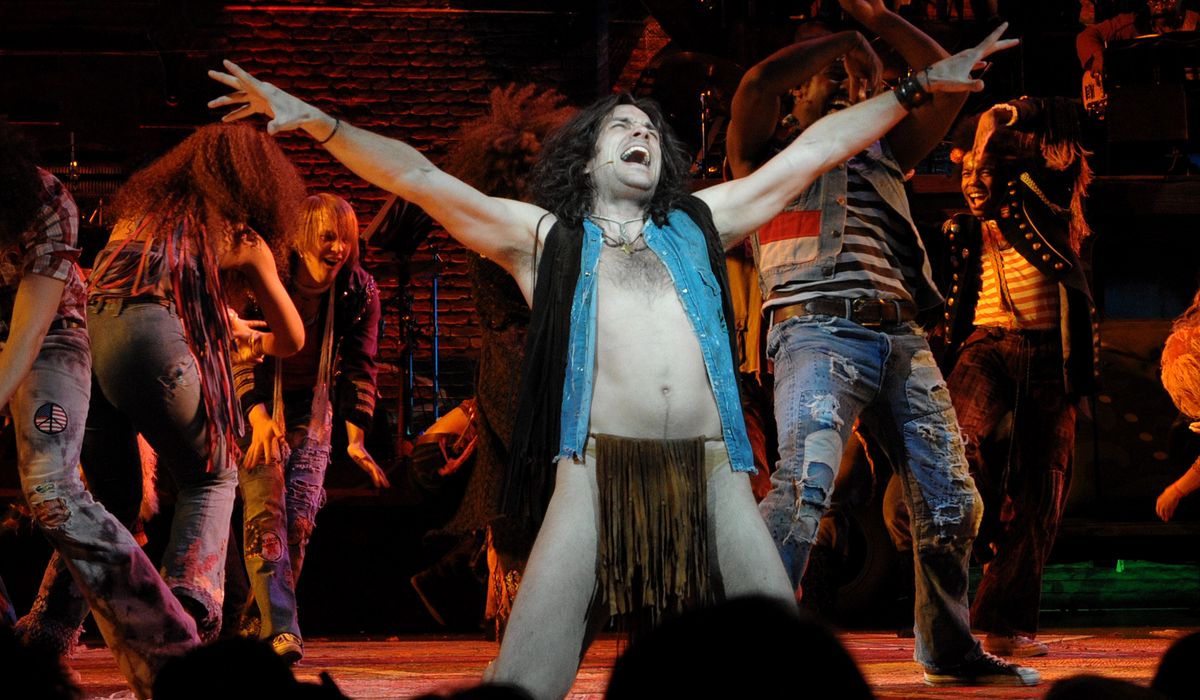OPINION:
“In the war for the American mind, entertainment programs have become political territory,” Kathryn C. Montgomery wrote in her book “Target: Prime Time.”
The 1960s radicalized American entertainment, as I chronicle in my new book, “Stumbling Toward Utopia: How the 1960s Turned Into a National Nightmare and How We Can Revive the American Dream” (Fidelis, 2024).
The Motion Picture Production Code, which limited depictions of on-screen sex and violence, was cast aside, and Hollywood adopted an “anything goes” approach with films that included nudity, explicit sexuality and graphic violence.
In the theater world, “Hair” promoted the 1960s counterculture with its plea for “harmony and understanding,” including disrespect for the American flag, widespread profanity, illegal drug use and nudity — all of which would be on display at the 1969 Woodstock music festival in upstate New York.
Meanwhile, television programs went from presenting the family as the cultural ideal, as in shows such as “The Adventures of Ozzie and Harriet,” “Leave it to Beaver” and “The Andy Griffith Show,” to relics to be ridiculed and redefined.
Seemingly in the blink of an eye, entertainment was transformed from something that brought people together into another method to divide society and pit Americans against each other, as well as an avenue to indoctrinate them to accept progressive beliefs.
While the entertainment industry and those who led and employed in it were never paragons of virtue, and it would be foolhardy and an exercise in denial, it did, with a few notable exceptions, make movies and television shows that promoted and celebrated the core American beliefs of faith, family and patriotism. They knew their audience, and they were patriotic, churchgoing Americans.
One of the leaders of the progressive brigade who used entertainment to transform how Americans viewed their country, neighbors and each other was Norman Lear. Television comedy and all of television have never been the same since Lear arrived on the scene in the late 1960s and rose to prominence in the early 1970s.
Lear not only pushed the envelope regarding what was acceptable on television but also opened it and unleashed a venom still affecting our society today.
He was upfront with his agenda. The first episode of “All in the Family,” Lear’s first hit series, opened with the statement that it sought “to throw a humorous spotlight on our frailties, prejudices, and concerns. By making them a source of laughter, we hope to show — in a mature fashion — just how absurd they are.”
Lear added that he deliberately created the buffoonish character Archie Bunker as a “poorly educated, full-of-himself blowhard … spewing a kind of rancid, lights-out conservatism.”
Progressive elites were exhilarated to finally have access to network television to push their agendas — such as abortion access, gay rights, mocking the military and the devaluing the American family.
For all of this, President Bill Clinton eventually honored Lear with the National Medal of Arts for “holding up a mirror to American society and changing the way we look at it.” That statement is sadly true. Lear smashed America’s mirror of sunny optimism and national unity and replaced it with a dark cloud of cynicism and division.
My book details the other entertainment forces that radically changed America in the 1960s. The bottom line is that many of our current social ills can be attributed to Lear’s and other progressives’ politicization and coarsening of the entertainment industry in the 1960s and early 1970s.
In the 1960s, Hollywood elites decided to no longer entertain the masses but preach to them and then hypocritically condemn them when they responded and acted upon what was pumped into their living rooms, theaters and concerts — graphic violence, premarital sex and adultery, to name just a few.
That is the sad entertainment legacy of the 1960s. As has been said, “law follows culture,” and by transforming the culture, the entertainment industry unleashed a Pandora’s box of horrors on America — horrors that changed law, public policy and the family for the worse.
It is my hope that by exposing the wrecking ball the industry took to our national psyche, we will reject its agenda and return to entertainment that uplifts and celebrates rather than attacks and condemns American values.
• Timothy S. Goeglein is the author of “Stumbling Toward Utopia: How the 1960s Turned Into a National Nightmare and How We Can Revive the American Dream” (Fidelis, 2024).
